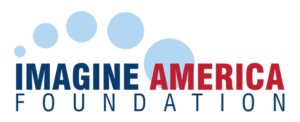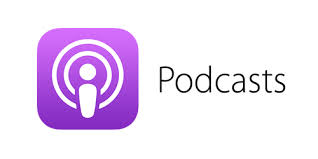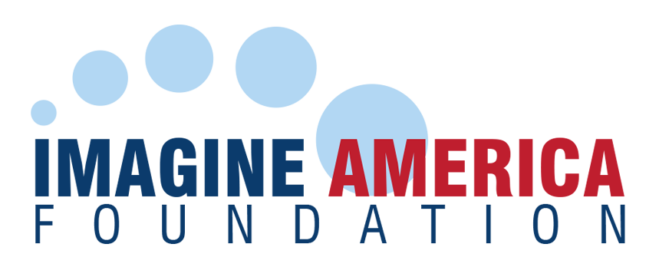Health science careers in 2020: Season 1, Episode 8
Health science careers in 2020: Season 1, episode 8

Career college central and Health science careers
Read more about health science careers in 2020 in the full article from Career College Central Magazine.
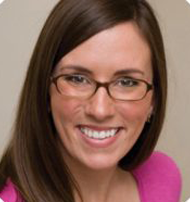
Jenni valentino
Our guest on this episode of Imagine America Radio is Jenni Valentino, senior writer for Career College Central magazine.
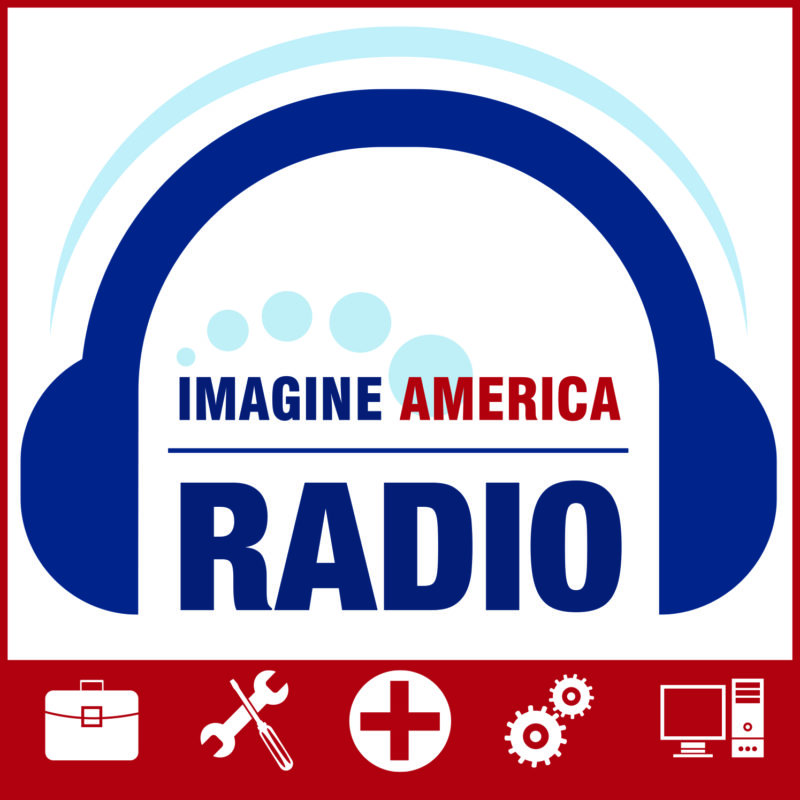
Imagine America Foundation
The Imagine America Foundation has been supporting students for over 20 years!
Don't have time to listen? Read the transcription
Bob Martin: Hey Jenni, thank you for joining us today. For all of our listeners’ sake, and for some background, could you tell us a little bit more about you and how you ended up being in the higher education space and, more importantly, becoming one of the premier writers for us on content. |
Jenni Valentino: Of course! I’ve been involved in higher education for about 15 years now. I started out writing copy for a lot of college university websites and digital ads, emails, things like that. Eventually got involved with Career College Central and Bob—gosh—over a decade ago and have really, really enjoyed watching the higher education space evolve and the trends in the employment industries go up and down over the years. It’s been fascinating to watch. |
Lee Doubleday: Great! So the piece we want to cover with you today, Jenni, is actually something you wrote for our magazine, titled The State of Health Science Careers in 2020. First, let’s establish what we mean by health science careers. What careers are we talking about specifically? |
Jenni: That’s a great question because the health sciences can be a little bit fluid. These are primarily careers that require skill and specialized training and the application of science to health, hence the name, but they don’t require a full medical degree. So it’s usually not a doctorate. These are the crucial roles that often have very specific areas and expertise like phlebotomist technicians, either cardiovascular or surgical, radiation therapists, different types of nurses, positions like that. |
Bob: So, Jenni, this is Bob again. Real quick, the piece you do was great; was a very nice piece. So tell me something. When you did it and when you researched the whole thing, what are one or two of the things that came out to you as interesting trends with regard to career opportunities and maybe financial incentives for people to go into those careers? |
Jenni: Well, the main thing is that health care, a career in the health sciences, is always going to be secure. A 2018 Moody’s report says that the sector has created more jobs than any other industry over the past decade, nearly 3 million jobs. Today, it employs about 16 million people, or 11% of the workforce. And when I wrote that piece a couple of months ago, we had quoted some experts in there from CNN and Glassdoor, talking about how health care hiring is so robust that the industry would be pretty much immune to a recession or any changes in politics. And what’s interesting is to see what has happened globally, even in the months since then. Now, we’re dealing with this pandemic, especially in the United States. We’re in a time of crisis. A lot of cities across the country are dealing with these shelter-in-place laws, and a lot of jobs are in jeopardy. Health care is not one of those fields. All of these positions we’re talking about, these health sciences careers, are more essential now than ever. These are the positions where people are being called out of retirement to come back to work. It is that secure. |
Bob: Why do you think—well, when you call people out of retirement, it assumes there’s a shortage, or least in my mind, there’s a shortage. What do you attribute to this gap that we’ve got with health care skills and where the shortages are and professionals? What’s your sense tell you? |
Jenni: So right now, we’re dealing with an unprecedented shortage because we’re dealing with an unprecedented pandemic. We haven’t dealt with anything like this on a global scale for a long time. Even discounting that on a day-to-day basis, I think it’s a combination of factors. These health science careers are skilled enough careers that they do require a level of education that on-the-job training won’t cut it. So these people need to go back to school; they need to have these specialized skills. You can’t just pull somebody from a temp agency to be an RN or a technologist. And then I also think that the agent population in the US and around the world definitely contributes. More and more people are going into retirement out of the medical field. At the same time, they’re becoming patients themselves as are people retiring in every other industry. So not only are those older health care workers leaving the field, they are also needing more health care assistance. |
Lee: Right. Yeah, and in the article, you actually listed about eight to ten health career occupations that are particularly sought-after in 2020. Are there any of the careers in that list that surprised you, and why do you think that is? |
Jenni: There aren’t really any that surprised me. I do think that in health sciences, we’re starting to see some more careers that are not patient-facing, that are more technological, where you’re behind a computer dealing with medical records or insurance and billing, that kind of thing. However, you’re never going to lose that face-to-face patient aspect of medical care, especially in the health sciences. There are always going to be these careers that continue growing, continue having more opportunity for growth because the people are always going to be there. What’s happening is we are adding on IT-driven careers on top of that. I am slightly surprised in some of the disparity in salary in some of these positions; there are some of them that I would assume to be much more equivocal that are not. And so for things like that, I would encourage people to check out those Career College Central websites and magazine articles to kind of look more into details of that. |
Bob: For those salary differences, real quickly, before we close it, that’s beyond just regional variations? Am I reading that wrong, or am I right? |
Jenni: It’s a combination of both. We’re talking about an average across the US in the salary discrepancies. However, there’s definitely a regional aspect to that as well, as there is a regional aspect to the opportunities available. So that’s something else too, if you’re someone who is looking to get into the health sciences: it makes sense to look specifically at your city and your state and what is most in need there, because it does vary across the country. |
Lee: All right. Well, thank you, Jenni, for your time today and your expertise. It’s been a pleasure, as always. And we also want to take our time to thank any of those in the health industry now for everything that they’re doing, especially during this pandemic, as more and more health care technicians are needed. This podcast, in particular, is very timely. So thank you, Jenni, for your time, and we look forward to recording our future podcasts with you in the months to come in 2020. |
Jenni: Absolutely! |
Bob: Thank you, Jenni. |
